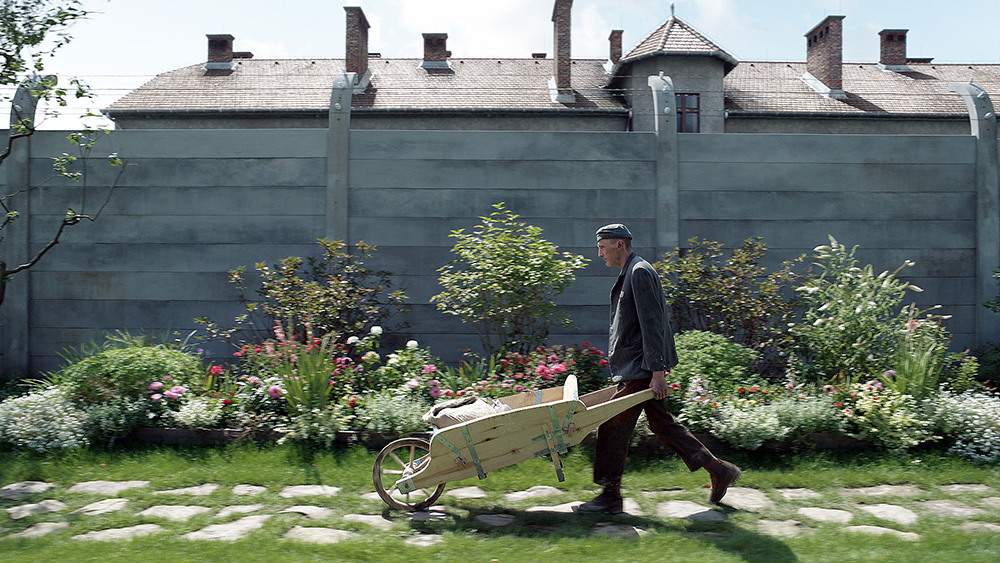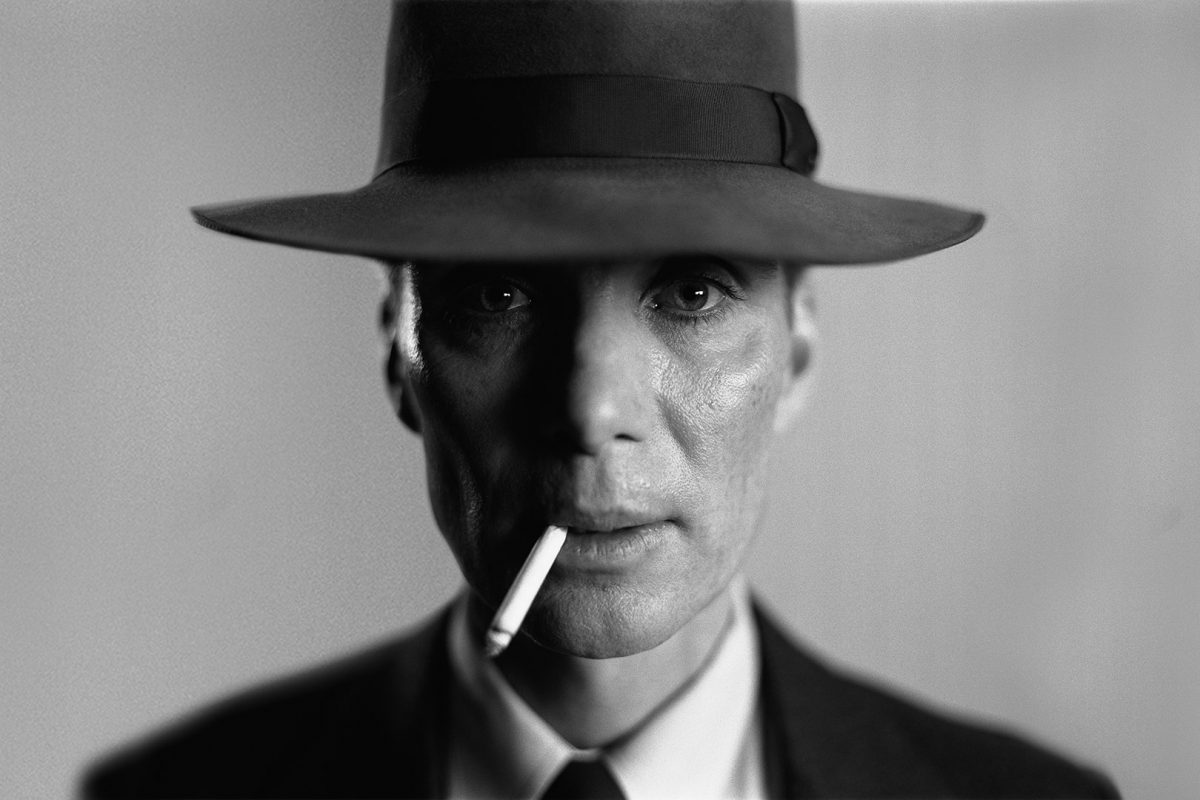While I was watching The Zone of Interest, my mind kept going back to “The Ones Who Walk Away from Omelas.” Ursula Le Guin’s Hugo Award-winning 1974 short story describes a utopian city where all of the civic functions seem to run pretty smoothly, and all of the citizens are cared for and happy. But this town has a secret. Once citizens are old enough, they are shown a prison cell where a child in chains is slowly being starved to death. The citizen is told Omelas’ happiness and prosperity depends on this child’s suffering.
Most people just shrug and move on with their otherwise fulfilling lives. There’s just one kid in the box, and so many who are doing great. It’s a fair trade-off, they think. But every now and then, someone who finds out about the child chained in the prison cell wanders into the wilderness and never comes back. Why anyone would do this is a mystery to those who stay behind.
In Jonathan Glazer’s new film, exactly one person walks away from a beautiful villa built next to a death camp. Because the moment comes so unexpectedly and is done so perfectly, I won’t spoil it in this review, except to say that the one who walks away is not Rudolph Höss (Christian Friedel), the owner of the home who, not coincidentally, is also the commandant of the Auschwitz concentration camp.
It’s 1943, and Rudolph is riding high. The Nazi project of conquering all of Europe to the Urals, exterminating the Jews and subjugating the Slavs so that the Aryans can have lebensraum (“living space”) to build beautiful farms where they raise beautiful, white families, is working. Rudolph and his wife Hedwig (Sandra Hüller) refer to themselves as “settlers.” As befitting an SS officer of his rank, the couple has a huge house with a sprawling garden and even a swimming pool with a slide. On one side, their property backs up to an idyllic country stream. The other side shares a wall with the Auschwitz death camp, whose foreboding stone buildings are just visible behind the razor wire. This is convenient for the commandant, who likes to work from home.
Rudolph Höss, not coincidentally, also starved random children to death. He did it as a method of collective punishment every time a prisoner escaped Auschwitz.
The real genius of The Zone of Interest is that Glazer never shows any of Rudolph’s work on screen, save for one moment when a line of prisoners is led into his fields by guards on horseback. But the signs of the atrocities happening just over the wall are inescapable. When the wind is right, ash from the crematoria floats over laundry drying on the clothesline. Hedwig gets periodic deliveries of fine clothes and household goods confiscated from prisoners as they were led to the gas chamber.
The family, which includes five children, carries on with an eerie normality, but the one thing they can’t filter out of their perfect little world is the noise. The Zone of Interest is up for five Academy Awards, including Best Picture, Best Director, and Best Adapted Screenplay, where it faces stiff competition. The one award it deserves to win outright is Best Sound. Tarn Willers and Johnnie Burn’s soundscapes faithfully recreate what it was like to live next to a murder factory. When Hedwig’s mother (Imogen Kogge) visits, their tour of the gardens is punctuated by screams and gunfire. One of the film’s most chilling moments comes when the couple’s toddler son overhears his father order the guards to drown a prisoner in the river where the family plays.
Glazer’s last film was the excellent 2014 sci-fi creeper Under the Skin, which starred Scarlett Johansson as an alien predator who develops empathy for her Earthling prey. Rudolph and Hedwig don’t act like monsters. Mostly, they just stick to their routine as busy executive and doting housewife, throwing kids’ birthday parties, tending the garden (or at least supervising the enslaved gardeners), and navigating office politics. Ninety percent of the time, Glazer stays in their perspective — this is a film about how monsters view themselves, after all. But even surrounded by all the creature comforts, the family can’t keep reality at bay forever. The question Glazer’s remarkable film raises in the viewer is, “What atrocities do our comfortable lives allow us to ignore?”
The Zone of Interest
Now playing
Malco Ridgeway Cinema Grill & Bar

